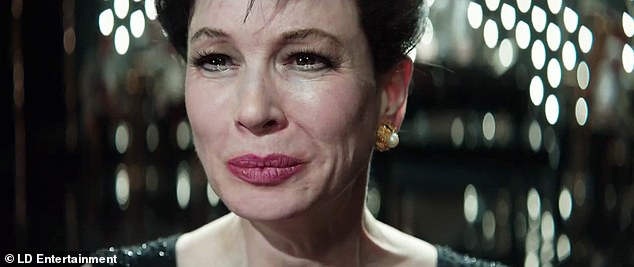
They say all the world’s a stage and all the men and women merely players in its show. The famous line from Shakespeare sounds great, but what if you were so famous that life began to truly feel this way, rendering you unable to tell what and who are genuine and what isn’t real at all? The effect this could have on a person’s psyche, and thus their life, could inevitably lead to dark places and leave them vulnerable to some of life’s worst excesses. Thus brings us to Judy, a film from director Rupert Goold starring Renee Zelwegger as screen legend Judy Garland during the final months of her life.
What’s most striking about Judy thematically is its analysis of how the zeal for the display of entertainers’ talents and the revenue they generate for executives behind the scenes can devolve into the commodification of celebrities and the disregarding of their humanity. In the film’s gorgeously shot opening, we flashback to Garland on the set of Wizard of Oz during a conversation with MGM studio head and co-founder Louis B. Mayer (Richard Cordery). In the scene, we see Garland explaining to Mayer that she would like to achieve more of a work-life balance and have time to enjoy things that regular kids her age would. Mayer explains that she is no longer a regular kid and thus, has different priorities and responsibilities that prevent her from doing so. He also explains that she owes it to he and the studio to take these priorities seriously, lest she go back to being a regular kid full-time. The exchange was typical for Mayer who has gone down in old Hollywood lore for his strict father-like control over his stars, particularly the younger ones, and his angry outbursts and casting couch tendencies.
The burden placed upon many celebrities of feeling indebted to loved ones and their bosses in suits can have dire consequences that are well documented, particularly for child actors. In the film, we see that after years of being plied with drugs to keep her alert for long hours on set and drowsy to finally be able to sleep, and constantly being told what to do and when to do it, Garland has developed into a woman starved for genuine connection and caring. Having never truly felt like anyone cared for her outside of her ability to generate revenue and/or entertain them, Garland was susceptible to any person with shady motivations that simply feigned the slightest bit of interest in her as a person. When you are treated more like a commodity than a human being, knowing who truly cares for you and who just wants their slice of your pie can be confusing to sort out and ultimately lead to feelings of isolation and loneliness. The comfort of knowing that you have people surrounding you that truly value you as a person is a vital part of a healthy existence and in many regards, copious amounts of fame and wealth can prohibit celebrities from every truly knowing this. The Judy Garland we are shown onscreen is one of the more egregious examples of this.
The film’s obvious centerpiece is Renee Zellweger’s much talked about performance as the titular legend and the actress does indeed knock it out of the park. Zellweger completely transforms herself into the old Hollywood star, completely encapsulating the weary and broken soul of a woman who had been working to please those around her for decades, but had never actually been cared for herself. Zellweger’s performance is more than just portraying Garland’s damaged self, it accurately depicts the fact that those most hurt and worn down by life can often come across as completely charming and unaffected, as Judy does at times even through her rampant alcohol and drug abuse. Zellweger also shines in the film’s musical numbers, singing live and very capably in front of an audience for the first time in her career. The amount of work the actress put into sounding good and matching the body movements of Garland is evident; making clear why her performance is expected to be one of the frontrunners for awards consideration next year.
While Judy features a fantastic portrait of a neglected celebrity isolated and abandoned after her prime earning years have passed powered by a masterful acting performance from Renee Zellweger, the film has little to offer outside of this sole aspect. There are some moments of quality cinematography, but outside of those fleeting shots, there’s not much to write home about. The story is pretty bare bones and the other acting performances simply serviceable. The main attraction is purely to witness Zellweger’s transformation and figure out where you’ll rank it in the race for the Oscar, but past that there’s not much beyond this rainbow.
Image: LD Entertainment

